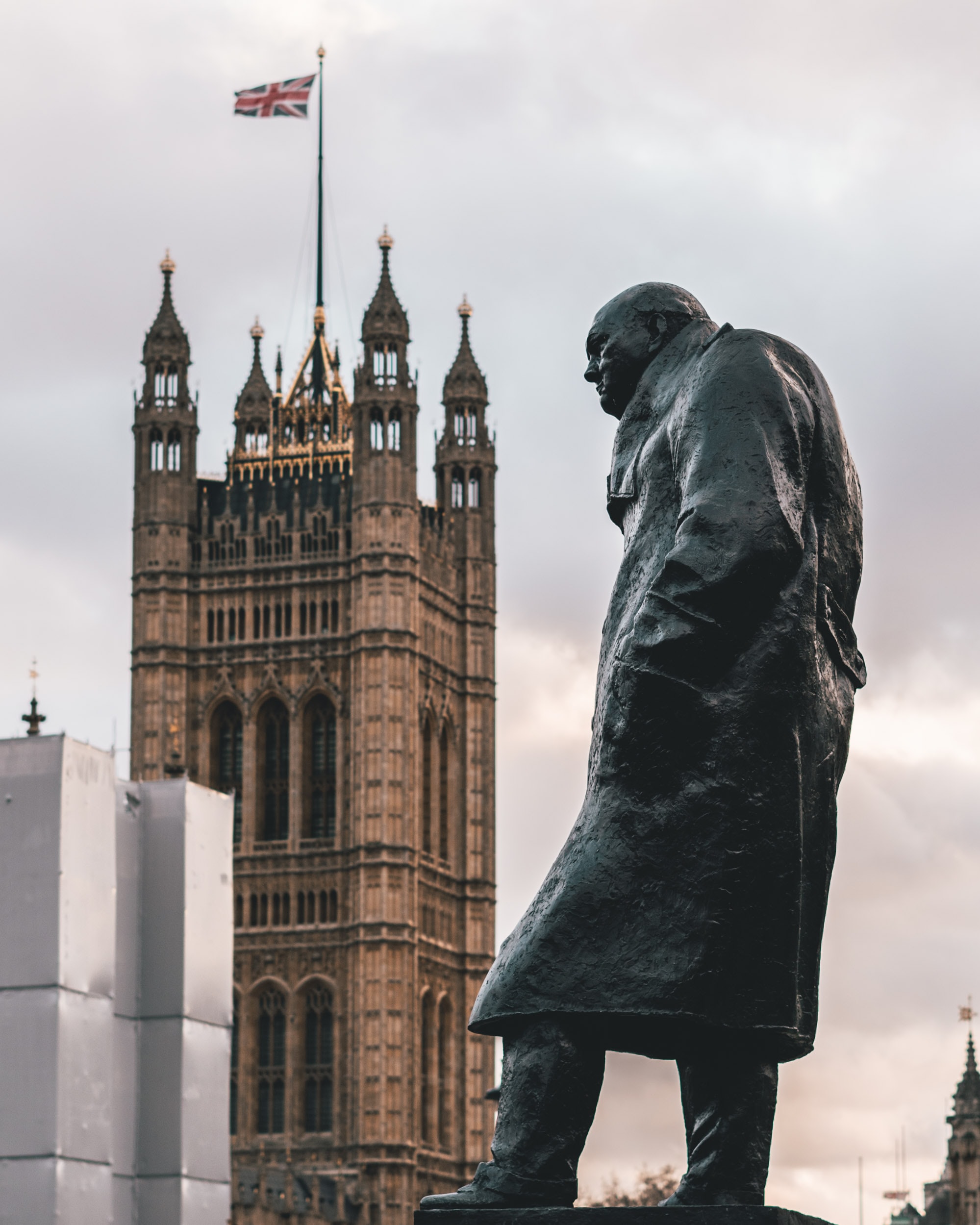Editor's note: The markets and our offices are closed on Monday, July 4, for Independence Day. Because of this, we won't publish Altimetry Daily Authority. Please look for your next edition on Tuesday, July 5.
 Former British Prime Minister Winston Churchill could stir emotions like no one else...
Former British Prime Minister Winston Churchill could stir emotions like no one else...
It's just too bad he couldn't control his own.
I stayed at the Churchill Hotel in London last week. The building was filled with memorabilia from the "British Bulldog," as he was called.
I often quote Churchill when teaching. After all, great leaders speak on the shoulders of giants. In the world of communicators, Churchill was a goliath.
His words alone probably caused Adolf Hitler to second-guess himself, in my opinion. Maybe that's part of what allowed for the massive British and French evacuations in Dunkirk. And his speeches certainly strengthened the resolve of British troops.
Talk about strong emotional motivation.
Churchill had a way with words that could pull at your heart strings and fire up your adrenaline at the same time.
Even Hitler couldn't disagree. The Nazi leader's comments about Churchill suggest he held him in high regard – and more than likely was at least a little scared of him.
Great speeches call for great emotions. Churchill mastered that art.
 Great investing, on the other hand, doesn't require emotion... In fact, it ought to be devoid of all feelings.
Great investing, on the other hand, doesn't require emotion... In fact, it ought to be devoid of all feelings.
Unfortunately, one of Churchill's biggest political strengths also seemed to be his investing downfall.
He invested in "hot tips," ranging from Colorado mining to Argentinian railways. Imagine how little research was available at the time. It's hard to believe he traded on more than a "gut feeling."
Not surprisingly, Churchill's portfolio took a beating. He invested in American stocks just as the Great Depression was about to begin. He traded the market highs of the late 1920s and lost terribly in the crash of 1929. He was known for spending extravagantly with money he didn't have.
In the book No More Champagne: Churchill and His Money, author David Lough discusses Churchill's financial position. Lough writes...
I have never encountered risk-taking on Churchill's scale during my career of advising people about their finances, including such natural risk-takers as entrepreneurs and politicians... He gambled or traded shares and currencies with such intensity that he appeared to be on a "high."
Intense emotions are necessary for motivating a country to defend itself against evil tyrants. But those same emotions make for bad investing.
Many of the investing greats – like Warren Buffett, Charlie Munger, Seth Klarman, and Jim Simons – remind us of that regularly.
 It's a shame these legendary investors don't get as much airtime as the overly emotional talking heads...
It's a shame these legendary investors don't get as much airtime as the overly emotional talking heads...
Emotions drive investing mistakes like "FOMO"... the fear of missing out. That can lead you to make high-risk, poor-payout investments like Churchill did.
On the flip side, emotional investing can lead to panic-selling. That's what we've seen with the markets in recent months.
Regular readers know that U.S. equity fundamentals are strong. Despite the panic in the mainstream media, corporate income statements and balance sheets aren't budging much.
In the face of all this financial "noise," you must remind yourself to buy low and sell high... not the other way around. You should still "dollar-cost average" into the stock market. (Dollar-cost averaging means investing a set amount at regular intervals, regardless of what shares are doing.)
Emotional behavior is the enemy of great decision-making. By keeping your feelings at bay, you can stay rational through uncertain times – and your portfolio will thank you.
Wishing you love, joy, and peace,
Joel
July 1, 2022






